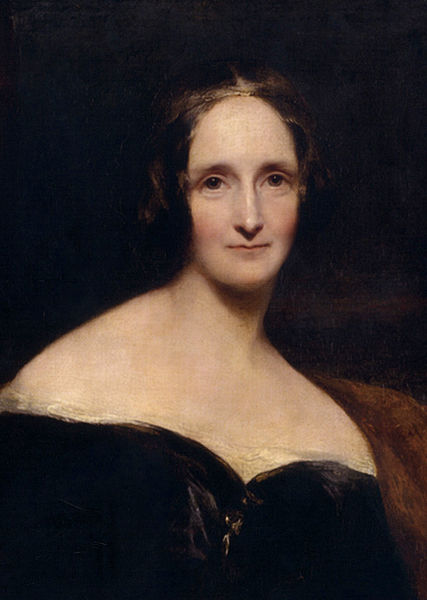Mary Shelley Quotes

My greatest pleasure was the enjoyment of a serene sky amidst these verdant woods: yet I loved all the changes of Nature; and rain, and storm, and the beautiful clouds of heaven brought their delights with them.
Mary Shelley
(Matilda, 1819)
How dangerous is the acquirement of knowledge and how much happier that man is who believes his native town to be the world, than he who aspires to be greater than his nature will allow.
My spirits were elevated by the enchanting appearance of nature; the past was blotted from my memory, the present was tranquil, and the future gilded by bright rays of hope and anticipations of joy.
Be men, or be more than men. Be steady to your purposes and firm as a rock. This ice is not made of such stuff as your hearts may be; it is mutable and cannot withstand you if you say that it shall not.
My heart was fashioned to be susceptible of love and sympathy, and when wrenched by misery to vice and hatred, it did not endure the violence of the change without torture such as you cannot even imagine.
My greatest pleasure was the enjoyment of a serene sky amidst these verdant woods: yet I loved all the changes of Nature; and rain, and storm, and the beautiful clouds of heaven brought their delights with them.
But I am a blasted tree; the bolt has entered my soul; and I felt then that I should survive to exhibit what I shall soon cease to be - a miserable spectacle of wrecked humanity, pitiable to others and intolerable to myself.
I am alone and miserable; man will not associate with me; but one as deformed and horrible as myself would not deny herself to me. My companion must be of the same species and have the same defects. This being you must create.
All men hate the wretched; how, then, must I be hated, who am miserable beyond all living things! Yet you, my creator, detest and spurn me, thy creature, to whom thou are bound by ties only dissoluble by the annihilation of one of us.
Learn from me, if not by my precepts, at least by my example, how dangerous is the acquirement of knowledge, and how much happier that man is who believes his native town to be his world, than he who aspires to become greater than his nature will allow.
I shall die, and what I now feel be no longer felt. Soon these burning miseries will be extinct. I shall ascend my funeral pile triumphantly and exult in the agony of the torturing flames. The light of that conflagration will fade away; my ashes will be swept into the sea by the winds. My spirit will sleep in peace, or if it thinks, it will not surely think thus. Farewell.
There is something at work in my soul which I do not understand. I am practically industrious — painstaking, a workman to execute with perseverance and labour — but besides this there is a love for the marvellous, a belief in the marvellous, intertwined in all my projects, which hurries me out of the common pathways of men, even to the wild sea and unvisited regions I am about to explore.
Even broken in spirit as he is, no one can feel more deeply than he does the beauties of nature. The starry sky, the sea, and every sight afforded by these wonderful regions, seems still to have the power of elevating his soul from earth. Such a man has a double existence: he may suffer misery, and be overwhelmed by disappointments; yet, when he has retired into himself, he will be like a celestial spirit that has a halo around him, within whose circle no grief or folly ventures.
I need not describe the feelings of those whose dearest ties are rent by that most irreparable evil, the void that presents itself to the soul, and the despair that is exhibited on the countenance. It is so long before the mind can persuade itself that she whom we saw every day and whose very existence appeared a part of our own can have departed forever—that the brightness of a beloved eye can have been extinguished and the sound of a voice so familiar and dear to the ear can be hushed, never more to be heard. These are the reflections of the first days; but when the lapse of time proves the reality of the evil, then the actual bitterness of grief commences. Yet from whom has not that rude hand rent away some dear connection? And why should I describe a sorrow which all have felt, and must feel? The time at length arrives when grief is rather an indulgence than a necessity; and the smile that plays upon the lips, although it may be deemed a sacrilege, is not banished. My mother was dead, but we had still duties which we ought to perform; we must continue our course with the rest and learn to think ourselves fortunate whilst one remains whom the spoiler has not seized.
